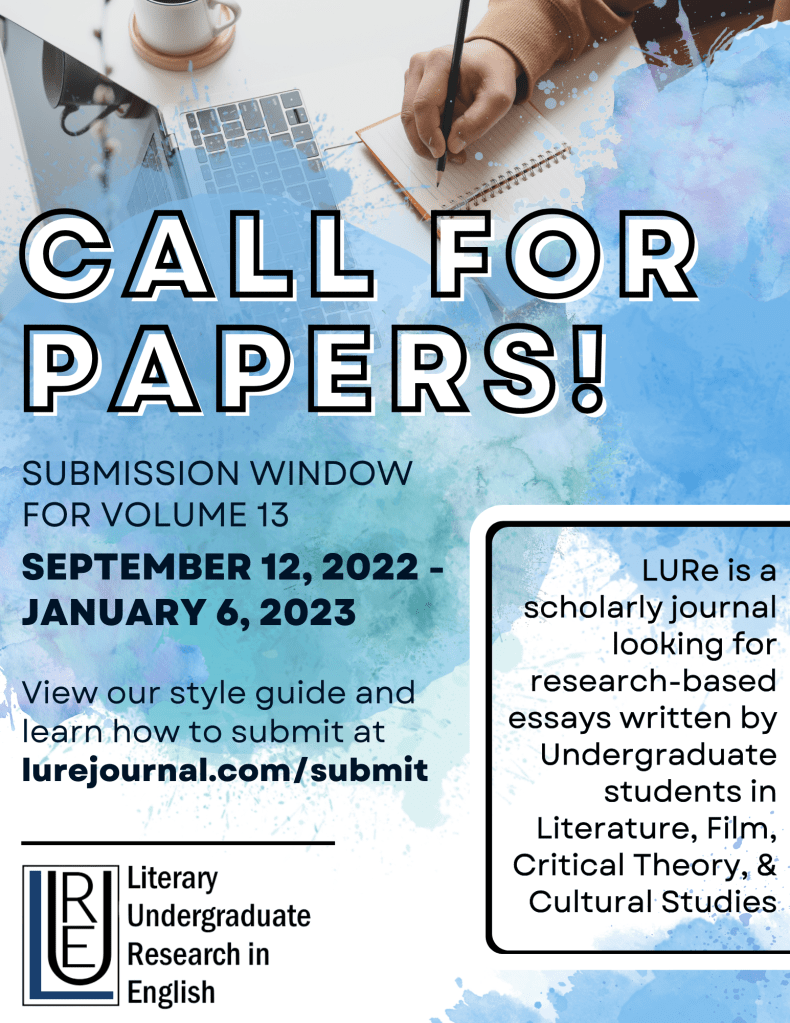
Volume 13 Update



Hi all, I’m happy to announce that we’re extending the deadline to submit papers for Volume 13 till the 20th! Get your papers in now for the chance to be featured in this year’s volume.
Thank you to everyone who made this possible! This pdf is also hosted on UWG’s website here.
See below for the full schedule for our upcoming conference!

Make sure to submit any papers you want to present at this year’s Undergraduate Research Conference (October 20th, 2022) to Dr. Haught by Sept. 26th! You can find her email at lhaught@westga.edu.


LURe will be accepting submissions for Volume 13 of the journal shortly. Don’t miss out!

Our submission window for Volume 12 has been extended by two weeks. Authors can now submit their work for potential publication until the end of the day on January 21, 2022. We look forward to reading your work!